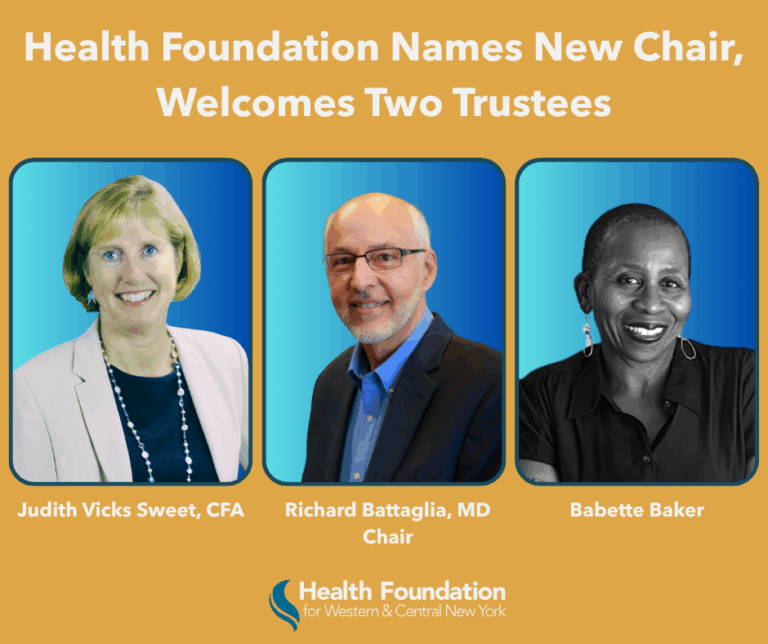This post is part of our Transform Rural Health campaign. Learn more, including how you can let your elected officials know that rural communities deserve the best opportunities for good health.
Rachel Povhe has an important job: as a health insurance navigator with Healthy Community Alliance, she helps people in her community understand their public health insurance options and sign up for coverage. Healthy Community Alliance is a rural health network with a mission of improving access to care and services for rural communities including Cattaraugus County and parts of Chautauqua, Erie and Wyoming counties. In our complex and sometimes daunting health care system, the assistance provided by Rachel and her fellow navigators at HCA can often be the difference between someone accessing the health care they deserve or not.
Rachel’s work is more essential than ever because automatic renewals for public health coverage recently ended across the U.S. as pandemic-era provisions wound down. Many people in western New York’s Southern Tier—the region served by Healthy Community Alliance—have to manually renew their health coverage for the first time in years. Some don’t know about the changes, while others have moved and forgot to update their mailing address. For others, language barriers or the complexity of renewal may stand in their way of health care access.
Still, Rachel finds that most people are eligible for renewing their coverage through Medicaid, Child Health Plus, or the Essential Plan once they learn of their options, and Rachel’s outreach can make the difference. “I’ve only spoken to a few clients who will end up losing their coverage.”
Once people renew, however, other challenges to access remain. She sees families, even those who are making good wages, fall off the ‘affordability cliff,’ a common challenge where people who make too much money to be eligible for Medicaid struggle to afford the premiums and co-pays of coverage through the Heath Care Marketplace.
“Health insurance is kind of a joke to some people because of the costs,” said Rachel. “If they’re faced with having to pay $600 or $700 a month in premiums, plus thousands of dollars toward a deductible, they’re thinking – can I go without insurance? But what if I get really sick? What if my kids get sick?”
Often, Rachel goes beyond the scope of her navigator role when she witnesses other disparities faced by rural residents.
“I had a client who would frequently stop into our offices to ask for help with transportation to medical visits,” she said. “He had to travel from Gowanda to Buffalo three times a week [approximately 40 miles] for dialysis treatments. Transportation and the lack of medical services is a huge challenge around here.”
Ann Battaglia, Chief Executive Officer of Healthy Community Alliance, says that considering the important role rural health networks play in connecting people to health coverage options, nutrition programs like WIC, and other critical services, New York State should invest more in rural programs.
“Over the last several years, the annual funding rural health networks receive from the state has nearly been cut in half,” said Ann. “The staff at these networks are used to being creative and developing solutions with other partners to help deliver services, but our budgets are limited. There are still a lot of people in these communities who aren’t getting the services they need.”
Rachel sees many examples of how access and affordability—or the lack thereof—can change people’s lives.
“I spoke to a person who was so excited that he could finally see a therapist because his Essential Plan benefits would cover it. He ended up getting a good job—which is a great thing, right?—and he no longer qualified for the Essential Plan and will have to stop going to counseling,” she shared. “The American Dream is to work hard and better yourself, but then when you do it, you find out you can’t afford your health care.”



